Frequently Asked Questions
FREQUENTLY ASKED QUESTIONS
FAQ for “THAT WAY MADNESS LIES…”
A Sandra Luckow Film
© 2018 Ojeda Films, Inc.
When did you find out your brother was ill? How did you find out?
In 2009, at the age of 46, Duanne started taking an obsessive interest in conspiracy theories, The New World Order, and the presumed prediction of the end of the world according to the Mayan calendar. He talked a lot about getting off-the-grid and was trying to convince my parents to purchase gold. But it wasn’t until he stormed the US Canadian Boarder with the intention of finding and marrying a woman he saw on the Internet whom he never met. This was considered his first verifiable psychotic break. One is not considered mentally ill, despite the behavior and symptoms, until one is diagnosed with a mental illness. It's like saying your cancer doesn’t exist until the moment your doctor tells you that you have it. My brother was someone who never went to the doctor, so I'm quite certain there was a big gap between the inception of his illness and when it was considered that he had an illness. And because of so much misinformation, mystery and mis-diagnosis about mental illness, attempting to pinpoint the time of onset, has proven useless. The presumption is, if one knows the onset, I think it gives the experts a false sense that they can fix it.
What made you decide to make this film?
When my brother was involuntarily committed to the Oregon State Hospital, the last thing on my mind was my profession, let alone making a film about this heartbreak. Before Duanne was committed for the first time, he told me that he didn’t know whom to believe or trust. I suggested he use his new iPhone to record when he was unsure so he could review it later or show it to someone he trusted. I didn't know he would be recording so much. Once inside the hospital, he continued to record and his phone was taken away. He asked me to retrieve the phone and look at the videos. I was shaken and devastated by what I saw: first-person, unfiltered psychosis, not a portrayal or interpretation of psychosis. It was scary and confusing and surreal. I took the footage to the psychology department at Yale School of Medicine and talked with Dr. Larry Davidson. He convinced me to continue filming to give context to Duanne’s footage because it was so rare a glimpse and so valuable to understanding this illness.
Was there anything about making this film you found enjoyable or rewarding?
I love the filmmaking process and particularly the high stakes nature of making a direct-cinema type of documentary. I don’t particularly like all of the tasks that are necessary to begin or finish a film -- like fundraising and trying to get distribution. And, after making Belly Talkers, a road-trip about ventriloquism, I had sworn off making films where I was in front of the camera as well. But I've found that the filmmaker is subservient to the story she is telling, and she is obliged to serve the story. Since I was asking my family to expose themselves this film -- this story-- required I exposed myself as well. I discovered over the course of making this film that regardless of what happened to me, to Duanne, to my parents, it was important work. I credit the film and my commitment to it to helping me survive this ordeal. Each time, and there were many of these times, when I was overwhelmed, exhausted, exasperated, scared, confused, frustrated, depressed and angry, I would think, “this is really unbearable and bad for me, but it is really good and necessary for the film." And I loved revisiting and finding the visuals of what a talented, wacky and wonderful existence we shared as a family. I love when viewers marvel at our creative eccentricities that were, for me, a “normal” part of growing up. It was bittersweet.
How did your parents feel about you making this film?
My parents were so caught up in watching their son degenerate, they didn't give the film much thought at first. They thought that it might be a tool to keep their son engaged and connected to us, and I don't think they realized at first, that it would involve them. When they did realize that, it was very very hard for them to remain open, particularly in moments when they were distressed, vulnerable, and confused. There were many moments I felt that my filming was adding to their pain. But our family always turned to "doing" something, anything, in moments of stress. I have to believe that it allowed them not to feel so out-of-control about his illness. They loved telling me what they thought I should be filming and when to cut. In March of 2012, when I had to go to court to get permission to sell Duanne's house, I brought one of my talented Yale students, Richard Miron, to do some shooting. You could see how much my parents enjoyed Richard and fawned over him. It was one more example of how much they missed the "old" Duanne, their beloved son who was so different now. ationship with him.
Will you show Duanne this film?
If Duanne expresses a desire to see the film, of course, I will show it to him. I'd like to think that if he were well, he would be celebrating this film with me because it is an honest and accurate account of our journey. He has been following the film's progress on our Facebook page and he even "liked" the new trailer. Until recently, every time I had shown it in Portland, he was either in jail or in the hospital. This past August when I showed it in Portland he was going to attend, but then decided not to come. He has been much more interested in the recent attention given to my film about Tonya Harding, Sharp Edges.
Duanne posted many of his iPhone clips on Facebook while I was making the film. One can surmise that he intended for others to view them, and when we began the filming, he often said he wanted the world to see what he was experiencing. But the question remains, what would he think about the footage I shot? Just as you cannot predict what anyone's perception of a film will be, I know my brother's perception will be his own.
Do you have plans for a wide release of the film?
We just signed a distribution deal with First Run Features, a well-respected and revered company for independent film and particularly documentaries. We are having a theatrical release on December 14, 2018 in Los Angeles and New York. After that, it may go wider but certainly to broadcast and streaming platforms. With First Run Features, I've found a distributor with the insight, intelligence, and sensitivity to the film's values and with the foresight of my executive producers who saw the potential in this story.
I've been working very hard in the outreach and education part of our distribution plan because the film illuminates a convoluted, complicated and contradictory system that many have encountered, few can explain and no one outside of this film has captured. I am stunned by the number of people at each screening who tell me, "this happened in my family" or to "someone I know..." I do screenings and talk backs to raise money for mental health advocacy groups. I hope the film is an agent for change because the truth of the matter is that we, as a nation spend $200 billion dollars a year in this country by ignoring severe mental illness.
(not including the cost of incarcerating mentally ill people who don't belong there.)
Have you worked with any mental health professionals on this film?
I have found the people working in the trenches of mental health — the first responders, the emergency room doctors to be valiant heroes too often restricted by policy. I had the opportunity to meet the cops who go to talk to Duanne at my parents’ house. They were professional and creatively masterful in their handling of the situation, and it was, at best, precarious. I burst into tears when I met them. Their kindness was beyond their job description. The Global Mental Health Program at Columbia University named me their 2018 Artist-in-Residence and, as part of an NEA grant, we have used the film to educate mental health professionals about the realities of the illness they are researching and trying to understand. The film has rearranged their approach to this harrowing problem. Unfortunately, it's the politicians, lawmakers and lobbyists who can make the biggest advancement in changing mental health care policies. But political agendas trump human need as we have seen time and time again.
What is it you hope to achieve with this film?
“That Way Madness Lies…" is meaningless if it is not a tool for change, for understanding of the illness, and the toxic ravages of stigma. Duanne was born on the very day that President Kennedy signed a new vision of mental health into law, but it was never properly fulfilled as he was assassinated three weeks later in Dallas. My film shows the realized potential of my brother -- a talented man --decimated, not only by an illness, but by a system that lays waste on the afflicted, and the destruction of those who love him.
Knowing what you know now, how do you feel about having made the film?
Of course, hindsight is 20/20 and there are many things I wish I could have done differently, but that doesn't mean it would have been a better film. I see the question as two separate issues: one is the film and the other is my handling of the issues illuminated in the film. I don’t think I had much of a choice or agency in the latter. I was pulled in so many directions that my choices were reactive, but in terms of making the film — I could not have been more fortunate. People came out of the woodwork to support the film. For me, the end-credits are one of the best parts of the film; those who gave what they could to make it happen. I had a post-production dream-team starting with my editor Anne Alvergue who dealt, not only with hours of footage but my PTSD of the situation. I got to work with people with whom I have dreamed of working, like composer Michael Bacon and supervising editor Toby Shimin. I had the most insightful notes of my professional life from Abigail Disney who sat with me in my office and, scene-by-scene, help me find my voice. I think it is impossible to make another film like this in one’s life-time. I certainly do not welcome such tragedy and heartache in my
life again, but to collaborate and work with people who have so elevated my vision and work, I wish for that on every project.
Where is Duanne now?
As of this writing, Duanne refuses to believe he has a mental health issue. In the words of a respected mental health professional, "he is in the process of dying with his rights on." Since I finished filming, he has cycled through the system at least four times of which I am aware. He is sent to jail for criminalized behavior that stems from his illness. In jail, he is found not competent to stand trial so he is sent to the state hospital for competency restoration. After short stay, sometimes as little as a week, he is not restored to competency because he has the right to refuse medication or treatment of any kind. Which he does. He is sent back to the jail where he is deemed incompetent to stand trial and the charges are dismissed. He is released to the streets that very evening. And then the endless hamster wheel starts again.
I recently spoke to a police officer in the behavioral unit in Portland who said that Duanne has used up all of their good will and they were no longer going to be looking out for his well being. I clarified his meaning by saying, "What you are saying is that if you find him in a place where he is not suppose to be you will not hesitate to shoot him." The officer demurred by saying that he hoped it did not come to that, but the state of Oregon was never going to force medicate him. That's my brother's reality.
FAQ for “THAT WAY MADNESS LIES…”
A Sandra Luckow Film
© 2018 Ojeda Films, Inc.
When did you find out your brother was ill? How did you find out?
In 2009, at the age of 46, Duanne started taking an obsessive interest in conspiracy theories, The New World Order, and the presumed prediction of the end of the world according to the Mayan calendar. He talked a lot about getting off-the-grid and was trying to convince my parents to purchase gold. But it wasn’t until he stormed the US Canadian Boarder with the intention of finding and marrying a woman he saw on the Internet whom he never met. This was considered his first verifiable psychotic break. One is not considered mentally ill, despite the behavior and symptoms, until one is diagnosed with a mental illness. It's like saying your cancer doesn’t exist until the moment your doctor tells you that you have it. My brother was someone who never went to the doctor, so I'm quite certain there was a big gap between the inception of his illness and when it was considered that he had an illness. And because of so much misinformation, mystery and mis-diagnosis about mental illness, attempting to pinpoint the time of onset, has proven useless. The presumption is, if one knows the onset, I think it gives the experts a false sense that they can fix it.
What made you decide to make this film?
When my brother was involuntarily committed to the Oregon State Hospital, the last thing on my mind was my profession, let alone making a film about this heartbreak. Before Duanne was committed for the first time, he told me that he didn’t know whom to believe or trust. I suggested he use his new iPhone to record when he was unsure so he could review it later or show it to someone he trusted. I didn't know he would be recording so much. Once inside the hospital, he continued to record and his phone was taken away. He asked me to retrieve the phone and look at the videos. I was shaken and devastated by what I saw: first-person, unfiltered psychosis, not a portrayal or interpretation of psychosis. It was scary and confusing and surreal. I took the footage to the psychology department at Yale School of Medicine and talked with Dr. Larry Davidson. He convinced me to continue filming to give context to Duanne’s footage because it was so rare a glimpse and so valuable to understanding this illness.
Was there anything about making this film you found enjoyable or rewarding?
I love the filmmaking process and particularly the high stakes nature of making a direct-cinema type of documentary. I don’t particularly like all of the tasks that are necessary to begin or finish a film -- like fundraising and trying to get distribution. And, after making Belly Talkers, a road-trip about ventriloquism, I had sworn off making films where I was in front of the camera as well. But I've found that the filmmaker is subservient to the story she is telling, and she is obliged to serve the story. Since I was asking my family to expose themselves this film -- this story-- required I exposed myself as well. I discovered over the course of making this film that regardless of what happened to me, to Duanne, to my parents, it was important work. I credit the film and my commitment to it to helping me survive this ordeal. Each time, and there were many of these times, when I was overwhelmed, exhausted, exasperated, scared, confused, frustrated, depressed and angry, I would think, “this is really unbearable and bad for me, but it is really good and necessary for the film." And I loved revisiting and finding the visuals of what a talented, wacky and wonderful existence we shared as a family. I love when viewers marvel at our creative eccentricities that were, for me, a “normal” part of growing up. It was bittersweet.
How did your parents feel about you making this film?
My parents were so caught up in watching their son degenerate, they didn't give the film much thought at first. They thought that it might be a tool to keep their son engaged and connected to us, and I don't think they realized at first, that it would involve them. When they did realize that, it was very very hard for them to remain open, particularly in moments when they were distressed, vulnerable, and confused. There were many moments I felt that my filming was adding to their pain. But our family always turned to "doing" something, anything, in moments of stress. I have to believe that it allowed them not to feel so out-of-control about his illness. They loved telling me what they thought I should be filming and when to cut. In March of 2012, when I had to go to court to get permission to sell Duanne's house, I brought one of my talented Yale students, Richard Miron, to do some shooting. You could see how much my parents enjoyed Richard and fawned over him. It was one more example of how much they missed the "old" Duanne, their beloved son who was so different now. ationship with him.
Will you show Duanne this film?
If Duanne expresses a desire to see the film, of course, I will show it to him. I'd like to think that if he were well, he would be celebrating this film with me because it is an honest and accurate account of our journey. He has been following the film's progress on our Facebook page and he even "liked" the new trailer. Until recently, every time I had shown it in Portland, he was either in jail or in the hospital. This past August when I showed it in Portland he was going to attend, but then decided not to come. He has been much more interested in the recent attention given to my film about Tonya Harding, Sharp Edges.
Duanne posted many of his iPhone clips on Facebook while I was making the film. One can surmise that he intended for others to view them, and when we began the filming, he often said he wanted the world to see what he was experiencing. But the question remains, what would he think about the footage I shot? Just as you cannot predict what anyone's perception of a film will be, I know my brother's perception will be his own.
Do you have plans for a wide release of the film?
We just signed a distribution deal with First Run Features, a well-respected and revered company for independent film and particularly documentaries. We are having a theatrical release on December 14, 2018 in Los Angeles and New York. After that, it may go wider but certainly to broadcast and streaming platforms. With First Run Features, I've found a distributor with the insight, intelligence, and sensitivity to the film's values and with the foresight of my executive producers who saw the potential in this story.
I've been working very hard in the outreach and education part of our distribution plan because the film illuminates a convoluted, complicated and contradictory system that many have encountered, few can explain and no one outside of this film has captured. I am stunned by the number of people at each screening who tell me, "this happened in my family" or to "someone I know..." I do screenings and talk backs to raise money for mental health advocacy groups. I hope the film is an agent for change because the truth of the matter is that we, as a nation spend $200 billion dollars a year in this country by ignoring severe mental illness.
(not including the cost of incarcerating mentally ill people who don't belong there.)
Have you worked with any mental health professionals on this film?
I have found the people working in the trenches of mental health — the first responders, the emergency room doctors to be valiant heroes too often restricted by policy. I had the opportunity to meet the cops who go to talk to Duanne at my parents’ house. They were professional and creatively masterful in their handling of the situation, and it was, at best, precarious. I burst into tears when I met them. Their kindness was beyond their job description. The Global Mental Health Program at Columbia University named me their 2018 Artist-in-Residence and, as part of an NEA grant, we have used the film to educate mental health professionals about the realities of the illness they are researching and trying to understand. The film has rearranged their approach to this harrowing problem. Unfortunately, it's the politicians, lawmakers and lobbyists who can make the biggest advancement in changing mental health care policies. But political agendas trump human need as we have seen time and time again.
What is it you hope to achieve with this film?
“That Way Madness Lies…" is meaningless if it is not a tool for change, for understanding of the illness, and the toxic ravages of stigma. Duanne was born on the very day that President Kennedy signed a new vision of mental health into law, but it was never properly fulfilled as he was assassinated three weeks later in Dallas. My film shows the realized potential of my brother -- a talented man --decimated, not only by an illness, but by a system that lays waste on the afflicted, and the destruction of those who love him.
Knowing what you know now, how do you feel about having made the film?
Of course, hindsight is 20/20 and there are many things I wish I could have done differently, but that doesn't mean it would have been a better film. I see the question as two separate issues: one is the film and the other is my handling of the issues illuminated in the film. I don’t think I had much of a choice or agency in the latter. I was pulled in so many directions that my choices were reactive, but in terms of making the film — I could not have been more fortunate. People came out of the woodwork to support the film. For me, the end-credits are one of the best parts of the film; those who gave what they could to make it happen. I had a post-production dream-team starting with my editor Anne Alvergue who dealt, not only with hours of footage but my PTSD of the situation. I got to work with people with whom I have dreamed of working, like composer Michael Bacon and supervising editor Toby Shimin. I had the most insightful notes of my professional life from Abigail Disney who sat with me in my office and, scene-by-scene, help me find my voice. I think it is impossible to make another film like this in one’s life-time. I certainly do not welcome such tragedy and heartache in my
life again, but to collaborate and work with people who have so elevated my vision and work, I wish for that on every project.
Where is Duanne now?
As of this writing, Duanne refuses to believe he has a mental health issue. In the words of a respected mental health professional, "he is in the process of dying with his rights on." Since I finished filming, he has cycled through the system at least four times of which I am aware. He is sent to jail for criminalized behavior that stems from his illness. In jail, he is found not competent to stand trial so he is sent to the state hospital for competency restoration. After short stay, sometimes as little as a week, he is not restored to competency because he has the right to refuse medication or treatment of any kind. Which he does. He is sent back to the jail where he is deemed incompetent to stand trial and the charges are dismissed. He is released to the streets that very evening. And then the endless hamster wheel starts again.
I recently spoke to a police officer in the behavioral unit in Portland who said that Duanne has used up all of their good will and they were no longer going to be looking out for his well being. I clarified his meaning by saying, "What you are saying is that if you find him in a place where he is not suppose to be you will not hesitate to shoot him." The officer demurred by saying that he hoped it did not come to that, but the state of Oregon was never going to force medicate him. That's my brother's reality.













